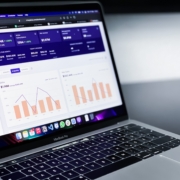Emerging Trends in HR Software: Shaping the Future of Work
In today’s rapidly evolving business landscape, HR professionals are turning to innovative technologies to streamline processes, enhance employee experiences, and drive strategic decision-making. As we navigate the dynamic world of HR software, several upcoming trends are poised to reshape the way organizations manage their human resources. From AI-driven insights to holistic employee engagement platforms, let’s explore the exciting trends that are set to define the future of HR software. If you want support from professionals to navigate this rapidly evolving space, contact our team here at ExactHire for how we can streamline your HR software!
AI-Powered Analytics for Data-Driven HR Software
Artificial Intelligence (AI) is no longer a buzzword; it’s becoming a cornerstone of HR software development. AI-powered analytics are transforming raw HR data into actionable insights, enabling HR teams to make informed decisions. Predictive analytics can forecast turnover rates, identify skill gaps, and even suggest personalized training plans for employees. With AI, HR professionals can proactively address challenges and create strategies that align with organizational goals.
Holistic Employee Experience Platforms
Employee experience has taken center stage in the world of HR. Modern HR software is shifting from siloed tools to comprehensive employee experience platforms. These platforms provide a seamless interface for employees to manage their benefits, performance reviews, training, and more. They also facilitate continuous feedback and recognition, fostering a culture of engagement and growth. By unifying various HR processes, organizations can enhance employee satisfaction and retention.
Virtual Reality for Training and Onboarding
Virtual Reality (VR) is making its mark in HR software with immersive training and onboarding experiences. Instead of traditional classroom-style sessions, new hires can engage in virtual simulations that replicate real-world scenarios. VR allows employees to practice complex tasks, develop soft skills, and familiarize themselves with their work environment before stepping foot in the office. This trend is especially relevant in a world where remote work and distributed teams are becoming the norm.
Diversity, Equity, and Inclusion (DEI) Technology
Creating a diverse, equitable, and inclusive workplace is a top priority for organizations. DEI technology within HR software is emerging as a powerful tool to measure, monitor, and promote diversity efforts. These tools can analyze data to identify potential biases in recruitment, pay, and promotions. By leveraging DEI technology, companies can ensure fair and unbiased practices while fostering a more inclusive work environment.
Continuous Performance Management In HR Software
The traditional annual performance review is giving way to a more dynamic and employee-centric approach: continuous performance management. HR software is enabling real-time feedback, goal tracking, and skill development conversations between managers and employees. By shifting the focus from retrospective evaluations to ongoing dialogue, organizations can drive employee growth, engagement, and productivity.
AI-Powered Chatbots for Employee Support
Chatbots are becoming an integral part of HR software, providing employees with instant answers to their queries and guiding them through various HR processes. These AI-driven assistants can assist with benefits enrollment, leave requests, policy inquiries, and more. By automating routine tasks, chatbots free up HR professionals to focus on strategic initiatives that require human expertise.
Remote Work Optimization
The remote work revolution has prompted HR software developers to create tools that cater to virtual work environments. From virtual team-building activities to remote performance tracking, these tools empower organizations to effectively manage and support their remote workforce. Features such as time tracking, productivity analytics, and collaboration platforms are crucial for maintaining efficiency in a distributed setting.
Blockchain for Secure HR Processes
Blockchain technology is making inroads into HR software, particularly in ensuring secure and tamper-proof record-keeping. From verifying educational qualifications to safeguarding sensitive employee data, blockchain can enhance the credibility and security of HR processes. This technology holds the potential to revolutionize areas such as background checks, payroll verification, and digital identity management.
Conclusion: Embracing the HR Software Revolution
As we stand on the cusp of a new era in HR management, these trends are driving the transformation of HR software. Organizations that embrace these innovations are not only enhancing their operational efficiency but also creating a more engaging and employee-centric workplace. From AI-driven insights that inform strategic decisions to immersive VR onboarding experiences, these trends are shaping the future of work, one software solution at a time. To stay ahead in the competitive business landscape, organizations must remain open to adopting these trends and leveraging technology to elevate their HR practices. The future of HR software is here – and it’s brighter than ever before.










